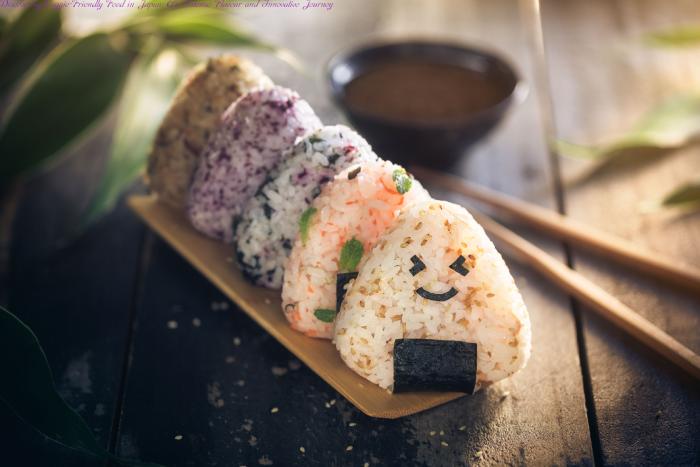Japan Vegetarian-Friendly Food When we think of Japanese food, we frequently picture dishes piled high with succulent teriyaki, sizzling ramen, and fresh sushi. But there’s far more diversity in Japan’s culinary landscape than that! Chefs and home cooks have been letting their imaginations run wild and creating some incredible vegetarian and vegan dishes in recent years. We will take you on a culinary tour of Japan’s vegetarian delights in this post. Prepare to explore an entirely new world of flavors like none before. Together, let’s get excited and explore the pleasure that lies ahead!
The Zen of Buddhist Cooking, or Shojin Ryori:
Let’s start our investigation with Shojin Ryori, a classic Japanese Buddhist dish with a long history. Shojin Ryori is a Japanese cooking style rooted in Zen Buddhism monastic practices. It emphasizes attention, simplicity, and reverence for ingredients. To create wonderfully balanced and healthy dishes, this plant-based cuisine emphasizes seasonal vegetables, tofu, seaweed, and other natural ingredients. Shojin Ryori celebrates the abundance of nature and the art of minimalism via dishes like delicate vegetable tempura, hearty bowls of miso soup, and well-made pickled vegetables.
Okonomiyaki: A Flavorful Pleasure
The famous meal okonomiyaki, sometimes known as “Japanese pancake” or “Japanese pizza,” is easily adaptable to a plant-based diet. This versatile treat has a flavorful batter consisting of flour, grated yam, shredded cabbage, and various fillings, including maize, onions, and mushrooms. Okonomiyaki is cooked on a hot grill and covered with vegan mayonnaise, seaweed, and bonito flakes (which can be eliminated in the plant-based version). The sauce is acidic and somewhat sweet. For those who want to enjoy the comforts of Japanese street cuisine without sacrificing their plant-based diet, this delicious delight is a must-try.
Yasai Itame: Stir-Fried Vegetable Symphony:
Stir-fried vegetables, or Yasai Itame, are a colorful and savory meal that highlights the freshness and adaptability of Japanese produce. Quickly stir-fry a colorful mix of veggies, including bell peppers, carrots, snap peas, and mushrooms, with soy sauce, ginger, and garlic to create this plant-based treat. The ultimate product is a tasteful fusion of flavors and textures that highlights the veggies’ inherent crispness and sweetness. Yasai Itame is a filling and healthy meal either eaten on its own or combined with steaming rice.
The Craft of Sesame Tofu, or goma-tofu:
A main ingredient in Goma-dofu, or sesame tofu, is an excellent dish that showcases tofu, a mainstay in Japanese cuisine. Grounded sesame seeds, kuzu starch, and water are the only ingredients in goma-dofu, which has a soft, creamy texture that melts on your tongue. It’s common to serve this cold plant-based pleasure with grated ginger, wasabi, and soy sauce for an extra taste boost. Goma-dofu, with its silky consistency and nutty scent, is a monument to the inventiveness and originality of Japanese plant-based cuisine.
Tempura and Soba Noodles: A Classic Treat
Made with buckwheat flour, soba noodles are a popular mainstay in Japanese eateries. This vegan version has light and crunchy vegetable tempura alongside a hot bowl of soba noodles. You can make a vegan version of tempura batter by substituting plant-based products for the usual ingredients of flour, water, and egg. This meal is pleasant and soothing, nutritional and visually beautiful due to the mix of the lovely crunch of the tempura and the earthy soba noodles.
In summary
As our exploration of Japan’s vegetarian food draws to a conclusion, it is evident that eating a plant-based diet is not only feasible but also immensely fascinating and delectable in the Land of the Rising Sun. Plant-based alternatives that highlight the quantity and beauty of natural foods are abundant in Japan, ranging from the savory joys of okonomiyaki and the brilliant flavors of Yasai Itame to the simplicity and mindfulness of Shojin Ryori. Therefore, Japan’s plant-based cuisine welcomes you to experience the joys of its plant-powered inventions and uncover a whole new world of flavors and cultural traditions, regardless of whether you pursue a plant-based lifestyle or wish to explore new gastronomic frontiers.
Also read:- The Unexpected Effects of Women’s Pajamas on the Quality of Their Sleep
